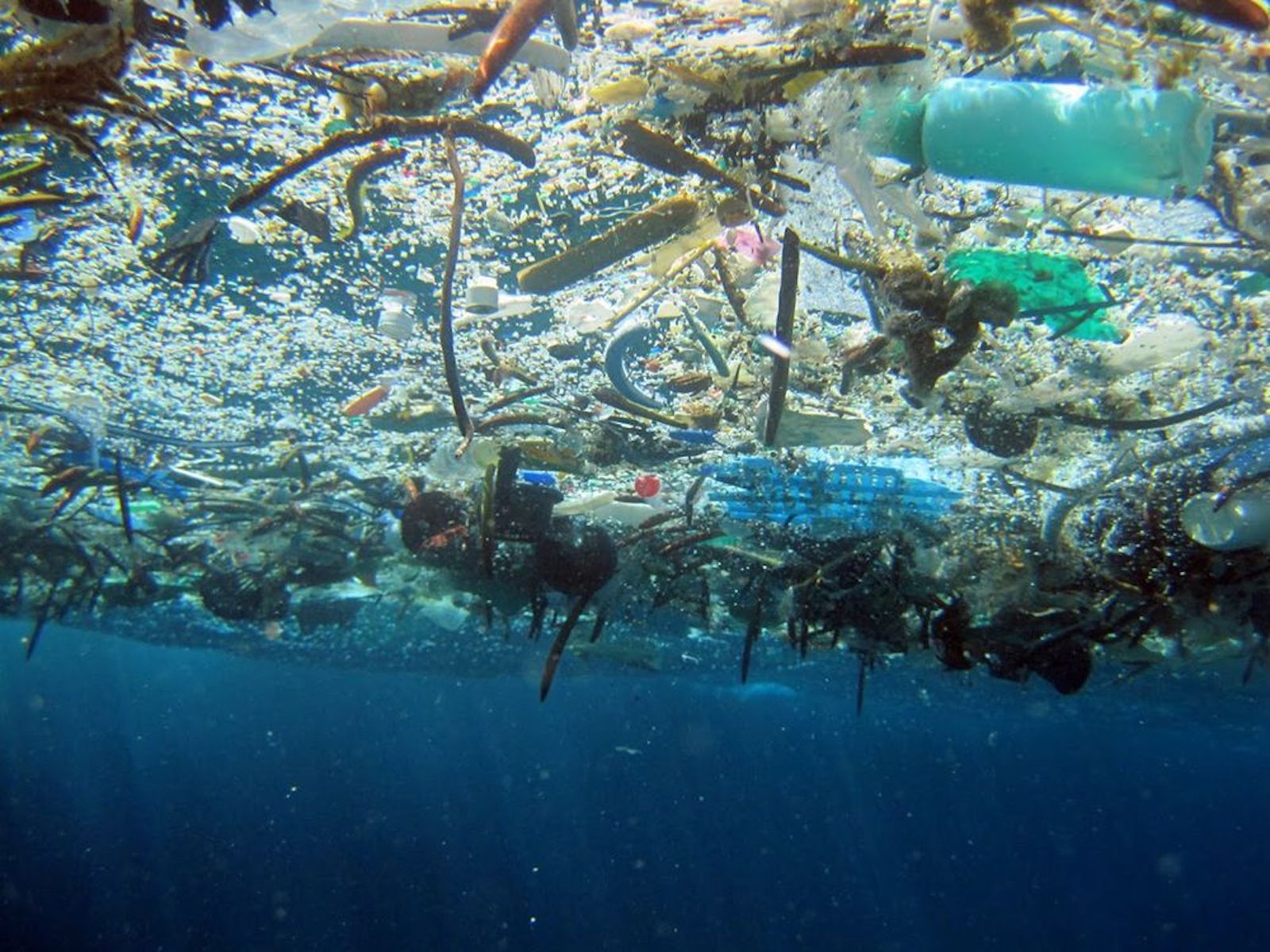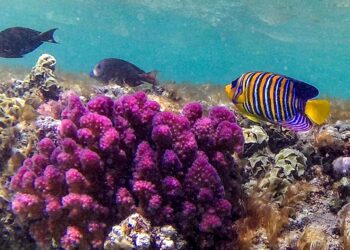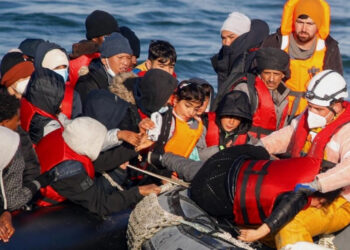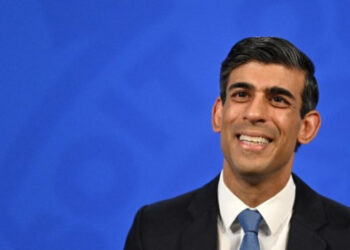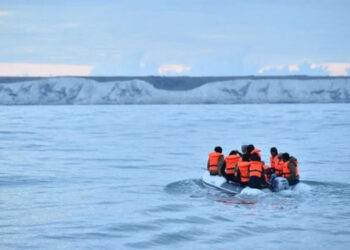When Lizzie Carr discovered she had cancer at age 25, she decided to take up a new sport as part of her battle plan: paddle boarding. She first tried it out in the azure seas of the Isles of Scilly, just 28 miles (45 kilometers) south of Cornwall, and on returning to London, decided to continue the sport on the canals.
But she realized first-hand there was a problem affecting the waters.
“I was paddling on Regent’s canal, and plastic bags would get caught on my fins,” Ms. Carr told The Globe Post. “I got used to seeing it, but one day, as I was paddling by I noticed a coots nest and it was entirely made up of plastic. That for me was a turning point. I was disgusted.”
Ms. Carr then went on a mission to traverse the length of the British waterways, becoming the first woman to make the trip solo across the English channel after 7 hours of solid paddling. To highlight the pollution and debris in waters, she collected every bit of plastic she found along the way. She has also started the hashtag #PlasticPatrol to plot the plastic pollution she sees on a map, to show the scale of the problem.
Marine biologists and other experts say we living in the “plastic age.” Record-breaking sailor Dame Ellen MacArtur, who has sailed around the world solo, recently warned in a report that the ocean will have more plastic than fish by 2050, with plastic having increased 20-fold since 1964.
The report, produced by the World Economic Forum and the Ellen MacArthur Foundation, calls for the need for a New Plastics Economy – one that would lead to a circular economy approach and aim to protect and restore natural systems.
Other groups are coming together to find solutions to the problem. In July 2016, 100 citizens and NGOs from around the world gathered in the Philippines to build a strategy and global movement to put an end to plastic pollution.
“As citizens, we should demand that our governments put in place regulations that require companies and manufacturers that make single use or disposable plastic, or utilize packaging to deliver their products, to take back all their packaging,” Dianna Cohen, CEO and Co-Founder of the Plastic Pollution Coalition, told The Globe Post.
As Ms. Cohen points out, single use plastics, or disposable plastics – like plastic straws, coffee stirrers, water bottles and food packaging – are used only once before they are thrown in the bin. Humans produce over 300 million tonnes of plastic every year, and only 10 percent of the materials are actually recycled. Plastic usually goes into a landfill or gets into the water.
“You might reconsider buying all your packaged food because it is leaking chemicals into what you are eating, which is a risk for your health and for the health of your children,” Ms. Cohen pointed out, adding that one of her main concerns is toxic chemicals like Bisphenol A, which is used to harden plastic. BPA has been linked to heart disease, type 2 diabetes, liver complications and brain tumors.
The Plastic Pollution Coalition runs campaigns like the Refill Revolution, which aims to change America’s throwaway culture. The campaign encourages citizens and the industry to use durable products that can be used thousands of times. So for instance, as a customer you would bring your own usable cup and get a discount on your coffee.
As millions of tons of plastic float on the sea each year, organizations like the Cornwall-based Surfers Against Sewage are also calling for people to boycott plastic.
Surfers Against Sewage CEO Hugo Tagholm got involved with the organization a year after it was formed in 1990, joining his passion for the sea and surfing with his campaigning experience.
“We became aware of plastic pollution as an organization and as individuals as we went surfing or walked over tidelines strewn with plastics that shouldn’t be there,” Mr. Tagholm told The Globe Post, adding: “Our current focus is on plastic pollution and stopping it from getting into the water.” SAS has managed to mobilize over 30,000 volunteers annually, giving 150,000 hours of their time to cleaning up the oceans.
“It’s not just your board you’ll be getting out in the water with,” one of the campaigns, directed at surfers, reads. “Bacteria and viruses responsible for hepatitis, gastroenteritis, salmonella and E. coli 0157 can all be found in polluted water.”
Plastic items account for nearly all the litter found in the sea, with the amount of rubbish in Britain’s water rising by 150 percent in a year. SAS, which organizes beach clean-ups and focuses on policy change to combat plastic pollution, was a key voice in getting the U.K. to enforce its plastic bag charge, which has stopped at least 9 billion bags from circulating according to government figures. Mr. Tagholm said he has noticed those changes during beach cleanups.
Organizations like SAS are now working together to convince the government to implement a plastic bottle deposit scheme, which would apply a tax to single-use containers that customers could reclaim on returning them. According to the Green Alliance, this scheme would lead to a 60 percent drop in plastic entering the sea.
Every second, the equivalent of a garbage truck full of plastic enters the ocean. The current solutions being put forward by organizations might just be a drop in the sea, but Ms. Carr, who now organizes paddle boarding trips to collect plastic, said that the flow of plastic could be stemmed if consumers just pay attention.
“The message to consumers and individuals is that by saying no to single use plastic like bottles and bags, you are making a statement,” Ms. Carr said. “That’s the only way we can make changes, by not perpetuating it. So I would encourage zero tolerance.”


